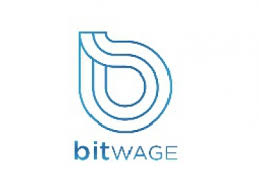From Bitcoin Novice to BitWage Payroll Founder
I was leading one of Oracle’s inside sales teams that was focused on two Midwestern states near the end of 2013. I’m not even sure where I first saw the word Bitcoin, but it was obvious something big was about to happen.
Soon I was reading every white paper and watching every video I could find. John Lindsay was working on the technical side of the house. A mutual friend noticed we were both interested in Bitcoin, we were introduced, and we began exploring what was happening.
Excited about Bitcoin
There were many digital currency exchanges, standalone wallets, and payment processors trying to build bridges from the virtual to the real world.
Rather than trying to build a better solution in these crowded spaces, we set out to find an area where Bitcoin was a natural fit, but that was completely unfilled.
It was John who looked into payroll processing and found it to be a completely green field. After a bit of experimentation during our alpha release in July of 2014, we released our payroll individual solution in November of 2014, which enabled anyone to receive their wages without their employers needing to sign up to our system. With this new solution our company, Bitwage, quickly became the largest Bitcoin enabled payroll processor.
Speculators, anti-bank idealists and the unbanked
Why would anyone choose to put any of their income in Bitcoin, short of having a specific Bitcoin-only purchase in mind? The initial group of people using Bitwage fell into one of three categories, speculators, anti-bank idealists and the unbanked.
The speculators seemed to be financiall- savvy working investors. They were looking for a high risk, high reward alternative to their 401ks and they were routing a portion of each check into Bitcoin, treating it as part of the volatile slice of their overall monthly investment pie. The investors would stay because of how much easier it was to receive a paycheck through us.
The anti-bank idealists wanted a way to live free from banks. From their perspective, the best way to vote against the banks was not with a checkmark on a ballot, but instead removing the lifeblood of a bank, which is its capital. By receiving a paycheck directly in Bitcoin, these users could completely remove their reliance on the banking structure.
The unbanked in the US, albeit a smaller group of Bitwage users than the previous two, had the most to gain. Most unbanked workers have to go to the cash checking industries, which have average fees of 4.11%. Receiving wages through Bitcoin would simultaneously help these workers save a great deal while making it safer and easier to save money. Unfortunately, for these workers, the educational and trust barriers are a lot harder to overcome, and thus not as many were using the system.
Bitcoin leverage
While all of this was happening in the US, countries all over the world, such as Brazil and the Philippines, were full of people working for companies in the U.S. or western Europe, and when they discovered Bitwage, things really took off. It turns out that banks there are loved even less than they are here.
So why were these international users so interested in leveraging Bitcoin for their wages? Turns out, that even after two conversions into and out of Bitcoin, the average international wire fee of 8% could be lowered to as low as 1%. Even better, the 5-15 day waiting period for people to receive their wages could be as fast as a next day process. Using Bitcoin’s public register means it’s easy to see what happens with a transaction. Legacy banking systema can and do simply lose large wire transfers for extended periods of time.
Things have gone well so far for us at Bitwage. We have just under 5,000 users and have processed close to $4m in the last 365 days. Being first is tremendous fun, but we also want to be the best. Our most recent improvement is Bitwage Payroll for Individuals in Europe.
Bitwage payroll for the individual allows individuals to receive any percentage of their wage in a variety of outputs including Euros, gold, silver, Bitcoin, and soon Ether, among 20+ other national currencies or via a debit card.
The system is so frictionless that we process wages from companies and organizations such as Facebook, Google, Uber, Upwork and even the US Navy. Users can track their transfers directly, instead of wondering if their bank will get it right this time.
When people ask how big the overall market is I like to point out the World Bank’s statistic that there are 2.5 billion people without access to banking. Even in the most remote village in Afghanistan, there is at least one person with a cellphone and an account using the M-Pesa system, which was first launched in Kenya in 2007.
There are many people out there who will use Bitcoin-powered payroll for all sorts of things.
We don’t have a development organization using Bitwage as a transfer mechanism to microlending agents in the third world, but it’s just a matter of time before something like this happens.
By Jonathan Chester, BitWage founder.
Via;http://cointelegraph.com/news/from-bitcoin-novice-to-bitwage-payroll-founder

